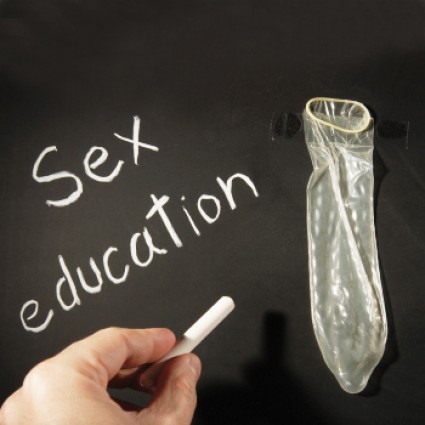When it comes to safe sex, it is important for sexually active teens to realize that condoms help prevent more than teen pregnancy. There are many risks teens take when they have unprotected sex including unintended pregnancy as well as sexually transmitted diseases.
Based on the history of the condom, this prevention device has been used during sexual intercourse to prevent sexually transmitted infections for longer than it has been used to prevent unwanted pregnancy. In fact, the condom has been used to prevent STIs and STDs since the 16th century. It was later in the 18th century actively used to prevent unintended pregnancy as well. According to many studies on the teenage perception of teen pregnancy rates and STDs, more teens are scared of the possibility of becoming pregnant or getting another person pregnant than they are concerned with contracting or spreading STIs. Because of this underestimation about the realities of the risks of unprotected sex, it is important for teens to realize that condoms help prevent more than teen pregnancy and should be used each and every time they have sex with another partner to prevent both teen pregnancy as well as STIs.
Condom Effectiveness:
When it comes to condom use, for those who use the method of protection against unintended pregnancy, only two out of 100 women couples will end up pregnant after a year’s usage. However, about 18 out of 100 couples will end up pregnant in the course of a year if the condoms are not used properly. Most of the errors encountered with improper condom usage include the 40 percent of men that reported they did not leave enough room at the tip of the condom to accommodate for the ejaculate usage. There are also cases where the condom is faulty to begin with but used anyway. The actual breakage rate of condoms is only at about two per 100 condoms if they are used correctly.
When it comes to using condoms to prevent STDs, they do help prevent any STDs like herpes, HIV, bacterial infections, viral infections and more. When condoms were used to prevent HIV among couples where one partner had HIV, only two percent of infection occurred. It is important, however, for sexually active teens and adults to keep in mind that condoms are only effective in helping to prevent STD transmission during sexual intercourse. Other types of sexual contact can also lead to STD and STI transmission.
While some abstinence-only programs, condom use is not encouraged since the program teachers are focusing on preventing unintended pregnancy and the spread of STDs through abstaining from sexual intercourse and other sex acts altogether. This is why many teens and even adults do not properly know how to use a condom and end up in the high percentage of condom users that find the condom broken at the end of intercourse, which leads to an increased risk in pregnancy as well as increased chances of STDs.
This is why it is important for parents to talk to their children about safe sex, whether they think their teen is having sexual relations or not. Learning how to effectively use a condom can not only cut down on the teen pregnancy rate, but it can also assist in reducing the spread of STDs and STIs among teens and adults.
Because condoms help prevent more than teen pregnancy, even teens who are on a hormonal method of birth control like the pill or the IUD, it is important to still use condoms to help prevent the transmission of STDs. There are a few myths about condom use as well. Some believe that double bagging (using more than one condom at a time) will help better protect against STDs and unintended pregnancy. This is not necessarily true unless there is a defect with one of the condoms. However, condoms that are at risk for defects (old, exposed to water or other elements) shouldn’t be used in the first place. Other condom myths surrounding double bagging indicate that this practice might actually cause the condom to break, which is also not true. There is no statistical evidence to support this.
Simply using condoms correctly, and teaching your teens how to properly use a condom in order to effectively prevent against STDs and teen pregnancy is the best way to practice safe sex.
Sources: plannedparenthood.org


